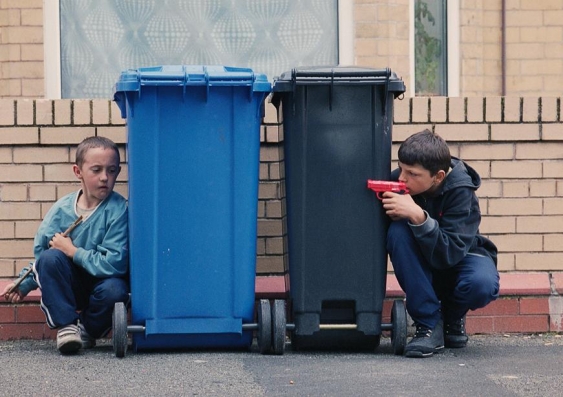Natural born pretenders
Children's impulse to play with weapons appears to be innate. So are our attitudes to guns stifling imaginative play?
Children's impulse to play with weapons appears to be innate. So are our attitudes to guns stifling imaginative play?

The first thing you notice in Prudence Murphy’s Sydney studio are the guns. Pinned to the wall are photos of semiautomatic weapons, pistols and shotguns used in the Columbine school massacre. Toy guns, stripped down to their various components, are laid out with forensic neatness on a table nearby.
Yet Murphy is not a criminologist or a detective. Instead the 42-year-old College of Fine Arts lecturer is researching her next photographic series, Detective Special, featuring guns and other weapons, and the way children interact with them.
Detective Special examines what Murphy calls the “fetishisation of firearms”. She also wants to explore the genres of child play involving guns – policemen, villains, soldiers and cowboys.
Murphy’s last work, Boys with Guns, was something she felt “compelled to investigate after observing polarised views concerning children’s gun play”.
Her curiosity deepened when she noticed her then 11-month old son pick up the TV remote control and pretend to shoot his three-year-old brother.
“I was fascinated and began to question where this desire and urge to turn an object into a weapon came from at such a young age,” she says.
Murphy is concerned that parents are at risk of stifling children’s imaginative play. “Parents project their own fears onto the child,” she says.
To read the full story, visit the Uniken website or download the Uniken app.